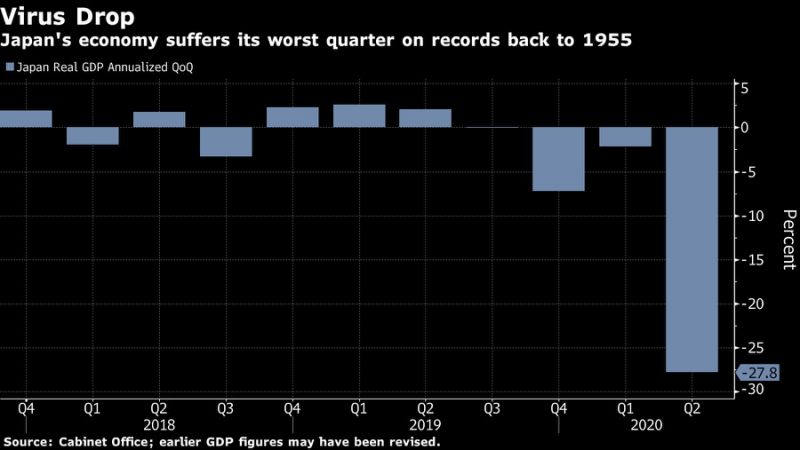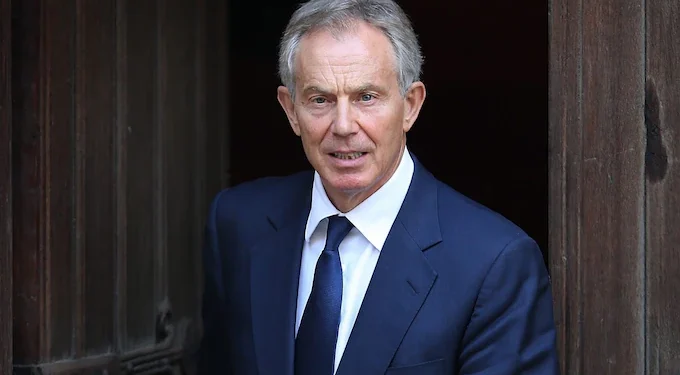The Japanese economy has shrunk at its fastest rate on record as it battles the coronavirus pandemic. The world’s third largest economy saw gross domestic product fall 7.8% in April-June from the previous quarter, or 27.8% on an annualised basis.
Japan was already struggling with low economic growth before the crisis and the figures released on Monday are a stark reminder of the severe financial impact faced by countries around the world.
Japan slipped into recession earlier this year following two successive quarters of economic contraction. Its latest data for the April to June quarter was the biggest decline since comparable figures became available in 1980 and was slightly bigger than analysts had expected.
One of the main factors behind the slump was a severe decrease in domestic consumption, which accounts for more than half of Japan’s economy. Exports have also fallen sharply as global trade is continues to be impacted by the covid-19 pandemic.
Japan is the latest in a string of Asian economies to report drastically lower second quarter GDP data. The latest data is the third successive quarter of declines for the Japanese economy, representing its worst performance since 1955.
The downturn puts further pressure on a Japanese economy that was already struggling with the effects of a sales tax hike to 10% last year, along with typhoon Hagibis. The nation’s gross domestic product in the three months to December shrank 1.6% from the previous quarter, even before the novel coronavirus outbreak in China hit Japan.

Japan is likely to do better than other economies according to some analysts. Capital Economics says even though the world’s third largest economy is in the midst of a second wave of infections, its health care systems aren’t overwhelmed, and new cases have started to decline. The research house says it expects to see third quarter GDP bounce back and continue through to next year.
Prime Minister Shinzo Abe has also introduced massive stimulus packages aimed to help mitigate the blow of the pandemic. While Japan lifted state of emergency measures in late May, concerns remain that a recent spike in infections may again hit business and household spending.
Asia Business Analyst, Karishma Vaswani offered hope after describing the plunge as “a time to look to the future and to the possibility of a rebound.”
She said, “That shouldn’t be a surprise: no one escaped the reach of the pandemic, and even if there weren’t strict lockdowns put in place, people generally stayed indoors and didn’t spend money.
“That has a knock-on effect on corporate earnings, as consumers buy less and so companies earn less.
“It’s a vicious cycle that in turn leads to a lack of confidence about hiring prospects , which means there’s also nervousness about job prospects. All of that is showing up in the numbers today,” she added.
China, the world’s second biggest economy definitely offers some cause for hope as its economy rebounded in the April to June period, with growth of 3.2%.





















